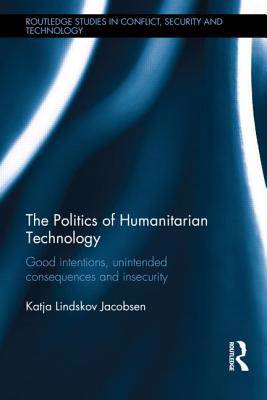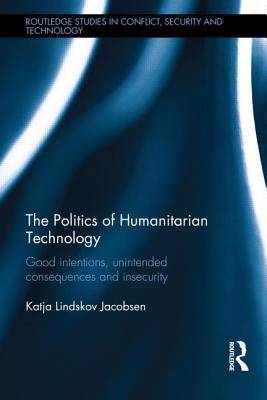
- Afhalen na 1 uur in een winkel met voorraad
- Gratis thuislevering in België vanaf € 30
- Ruim aanbod met 7 miljoen producten
- Afhalen na 1 uur in een winkel met voorraad
- Gratis thuislevering in België vanaf € 30
- Ruim aanbod met 7 miljoen producten
The Politics of Humanitarian Technology
Good Intentions, Unintended Consequences and Insecurity
Katja Lindskov JacobsenOmschrijving
This book offers a detailed exploration of three examples of humanitarian uses of new technology, employing key theoretical insights from Foucault.
We are currently seeing a humanitarian turn to new digital technologies, such as biometrics, remote sensing, and surveillance drones. However, such humanitarian uses of new technology have not always produced beneficial results for those at the receiving end and have sometimes exposed the subjects of assistance to additional risks and insecurities.
Engaging with key insights from the work of Foucault combined with selected concepts from the Science and Technology Studies literature, this book produces an analytical framework that opens up the analysis to details of power and control at the level of materiality that are often ignored in liberal histories of war and modernity. Whereas Foucault details the design of prisons, factories, schools, etc., this book is original in its use of his work, in that it uses these key insights about the details of power embedded in material design, but shifts the attention to the technologies and attending forms of power that have been experimented with in the three humanitarian endeavours presented in the book. In doing so, the book provides new information about aspects of liberal humanitarianism that contemporary critical analyses have largely neglected.
This book will be of interest to students of humanitarian studies, peace and conflict studies, critical security studies, and IR in general.
Specificaties
Betrokkenen
- Auteur(s):
- Uitgeverij:
Inhoud
- Aantal bladzijden:
- 208
- Taal:
- Engels
- Reeks:
Eigenschappen
- Productcode (EAN):
- 9781138022072
- Verschijningsdatum:
- 17/06/2015
- Uitvoering:
- Hardcover
- Formaat:
- Genaaid
- Afmetingen:
- 157 mm x 234 mm
- Gewicht:
- 408 g

Alleen bij Standaard Boekhandel
Beoordelingen
We publiceren alleen reviews die voldoen aan de voorwaarden voor reviews. Bekijk onze voorwaarden voor reviews.











